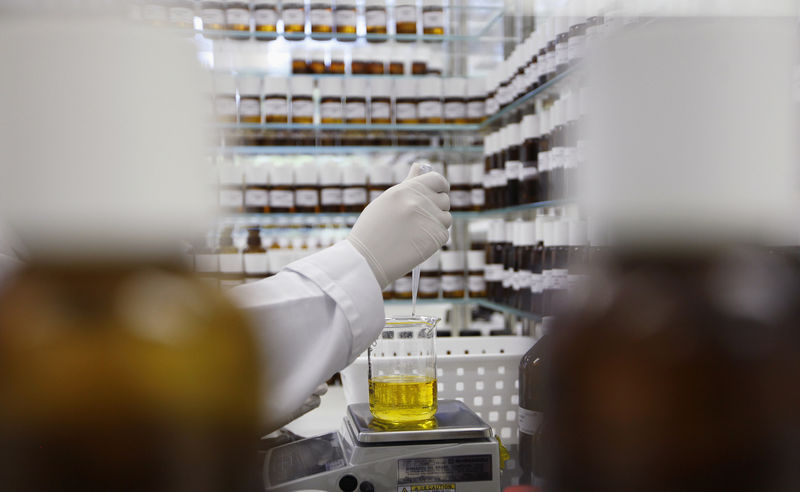Fubotv earnings beat by $0.10, revenue topped estimates
Investing.com -- Deutsche Bank (ETR:DBKGn) has made several rating and target price adjustments across the European pharmaceuticals space ahead of second-quarter earnings, flagging continued weakness in the sector and potential opportunities in select names.
Argenx (NASDAQ:ARGX) was upgraded from Hold to Buy with a target price raised from €525 to €550, while Sandoz (SIX:SDZ) was also kept at Buy with a target price lifted from CHF42 to CHF48.
On the other hand, Roche (SIX:ROG) was downgraded to Sell from Hold and the target cut from CHF250 to CHF235.
Swedish Orphan Biovitrum AB (ST:SOBIV) was upgraded from Sell to Hold with an unchanged SEK285 target, and CureVac (NASDAQ:CVAC) kept at Hold but with a target raised from $3.50 to $5.46.
Zealand Pharma A/S (CSE:ZELA) saw its target reduced from DKK485 to DKK400.
Analyst Emmanuel Papadakis said the team remains cautious heading into Q2 results, following similar views expressed in previous previews.
The sector saw a short-lived outperformance in late Q1, but Papadakis remains sceptical about its sustainability, stating the outlook for the sector continues to be “a little slippery.”
“Unfortunately we expect the present sector malaise to persist, largely as a consequence of persisting U.S. political headwinds,” he wrote in a note.
While the broader European market is up mid-single digits year-to-date, the SXDP pharma index has underperformed, losing more than 7% year-to-date, with large-cap pharma stocks broadly matching that weakness.
“Excluding Novo, it would have done slightly better and been close to flat,” Papadakis noted.
The weakness in pharma shares this year is largely due to tariff risks,
Earlier this month, U.S. Trade Representative Jamieson Greer signaled openness to "creative solutions" on pharmaceutical trade with the European Union.
EU officials are pushing for immediate tariff relief in key sectors as part of a broader deal with the U.S. ahead of the July 9 deadline, according to a Reuters report.
While the bloc appears resigned to a 10% baseline tariff, it is seeking broader terms that include commercial aircraft, semiconductors, and pharmaceuticals—industries currently under U.S. investigation but not yet subject to additional duties.
President Trump said in June that new tariffs on pharmaceuticals would be announced “very soon.”
